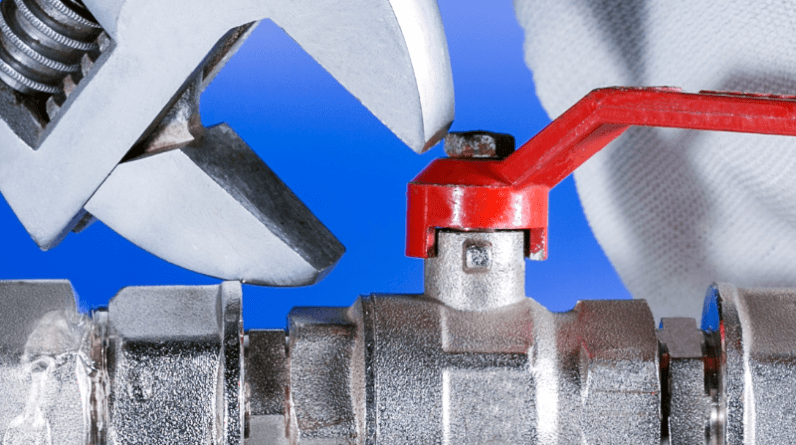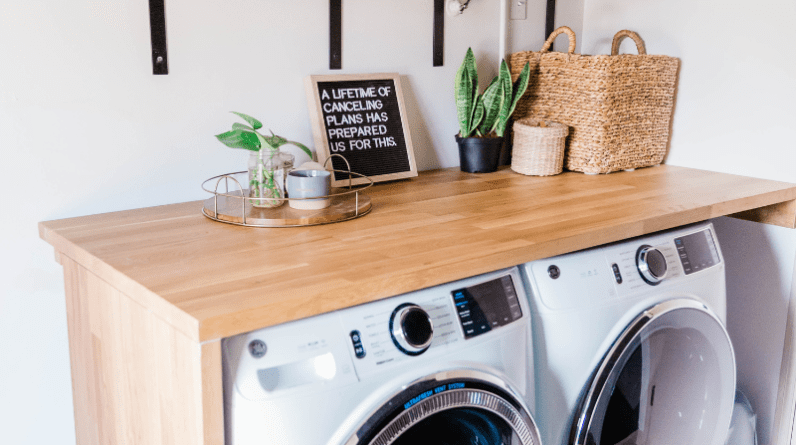
Introduction
Unlocking the Potential: Garage Conversion Plumbing and Electrical Considerations
As the housing landscape evolves, so do the creative solutions homeowners seek to maximize their property’s potential. One such trend that has gained significant popularity is garage conversions. What was once a mere space to house cars and store tools is now being reimagined into functional living areas that add both value and versatility to homes.
Garage conversions offer a plethora of possibilities, ranging from creating a comfortable guest suite or a dedicated home office to transforming the space into a trendy studio or a lucrative rental unit. However, the journey from a cluttered garage to a fully functional living space requires thoughtful planning and meticulous attention to detail. Among the many crucial considerations that homeowners and contractors must address, plumbing and electrical concerns stand out as critical pillars of a successful garage conversion.
This comprehensive guide delves into the essential plumbing and electrical aspects that demand careful assessment before embarking on a garage conversion project. Whether you’re a homeowner envisioning a functional space that meets your family’s needs or an investor looking to enhance property value and rental income, understanding and navigating the complexities of plumbing and electrical requirements are paramount.
As we embark on this exploration, we’ll delve into the initial plumbing considerations, which involve evaluating the existing infrastructure and understanding local building codes. We’ll also explore the intricacies of electrical planning and how to best integrate modern technologies to create a seamless and energy-efficient environment.
Join us on this journey to unlock the potential of your garage space, as we guide you through the plumbing and electrical considerations necessary to transform this underutilized area into a valuable extension of your home, enriching your lifestyle and investment in equal measure.
Plumbing Considerations
Before embarking on a garage conversion project, one of the first areas of focus should be the plumbing system. A thorough assessment of the existing plumbing infrastructure is essential to ensure that it can support the additional fixtures and demands of the new living space. Here are some key plumbing considerations to keep in mind:
- Preliminary Plumbing Assessment: Begin by conducting a comprehensive inspection of the current plumbing system in your garage. Take note of the location and condition of water supply lines, drainage pipes, and any existing fixtures. This assessment will help you understand the scope of work required for the conversion and identify potential challenges.
- Understanding Local Building Codes: Every region has its own set of building codes and regulations related to plumbing. It’s vital to research and understand these requirements to ensure compliance with local authorities. This may include obtaining permits for plumbing work and scheduling inspections during the conversion process.
- Addressing Potential Challenges: Garages are not typically designed with plumbing in mind, so you may encounter challenges like limited access to sewer lines or issues with the current drainage system. In such cases, you might need to explore alternative wastewater disposal solutions, such as installing a septic tank or a sewage ejection system.
- Designing Plumbing Layout: Careful planning of the plumbing layout is crucial to optimize the use of space in your converted garage. If you’re adding a bathroom or kitchen, consider the most efficient placement of fixtures like sinks, toilets, showers, and appliances. Work with a professional plumber to design a layout that ensures functionality and minimizes potential plumbing issues.
- Upgrading Plumbing Infrastructure: Depending on the condition and capacity of your existing plumbing, you might need to upgrade certain components to handle the increased demand. This could include installing larger pipes, updating water heaters, or adding water pressure regulators. Budgeting for these upgrades is essential to avoid unexpected expenses during the conversion.
- Ensuring Proper Ventilation: Proper ventilation is crucial for any plumbing system. Ensure that your new living space has adequate ventilation to prevent moisture buildup, which can lead to mold and other issues. Ventilation also aids in preventing foul odors and maintaining a healthy indoor environment.
By addressing these plumbing considerations early in the planning process, you can set a solid foundation for your garage conversion project. Hiring a licensed plumber who has experience with residential conversions can provide valuable insights and ensure that your plumbing system functions flawlessly for years to come.
Next, we’ll delve into the critical electrical considerations for your garage conversion, as electricity is the lifeblood that powers modern living spaces and enables the integration of technology and smart home features.
Electrical Considerations
In the modern world, electricity plays a pivotal role in our daily lives, and a successful garage conversion heavily relies on careful electrical planning. As you transform your garage into a functional living space, consider the following electrical considerations to ensure safety, efficiency, and a seamless integration of technology:
- Thorough Electrical Inspection: Begin by conducting a thorough inspection of your garage’s current electrical system. This assessment will help you understand the capacity of the existing electrical infrastructure and identify any potential safety hazards or shortcomings that need addressing. Hiring a licensed electrician for this evaluation is essential to ensure compliance with safety codes and regulations.
- Understanding Power Demands: Garage conversions often entail an increase in power demands due to the addition of lighting, outlets, appliances, and potential smart home technologies. Calculate the anticipated power requirements based on the intended use of the converted space. Adequate planning ensures that your electrical system can handle the load without overloading circuits or causing power disruptions.
- Dedicated Circuits: To accommodate high-power appliances like air conditioners, ovens, or power tools, consider installing dedicated circuits. Dedicated circuits ensure that these appliances have their own independent power source, preventing overload on other circuits and reducing the risk of tripped breakers.
- Lighting Solutions: Proper lighting is crucial for creating a welcoming and functional living space. Plan your lighting layout carefully, incorporating a combination of ambient, task, and accent lighting. Consider energy-efficient options like LED lighting to reduce electricity consumption and lower utility costs.
- Smart Home Integration: With the ever-increasing popularity of smart home technologies, consider integrating these features into your garage conversion. From automated lighting and climate control to smart security systems, these innovations offer convenience and energy-saving benefits. However, ensure that your electrical system can accommodate the additional power demands and that all installations comply with safety standards.
- GFCI and AFCI Outlets: Ground Fault Circuit Interrupter (GFCI) and Arc Fault Circuit Interrupter (AFCI) outlets are crucial safety features that help prevent electrical shocks and fires. Install GFCI outlets in areas exposed to moisture, such as bathrooms and kitchens, and AFCI outlets to protect against electrical arcs that could result in fire hazards.
- Energy Efficiency: As sustainability becomes increasingly important, consider energy-efficient solutions for your electrical plan. Install programmable thermostats, energy-efficient appliances, and motion sensor lighting to reduce energy consumption and lower your environmental impact.
By addressing these electrical considerations during the planning phase, you can ensure that your garage conversion is not only functional and safe but also aligned with modern technology and energy-saving trends. Collaborate with a licensed electrician throughout the process to guarantee that all electrical work meets safety standards and is future-proofed for any potential upgrades or changes. As you embark on this electrifying journey, your converted garage will soon be buzzing with energy and life.
Hiring Professionals and Conclusion
4.1 Hiring Professionals: Undertaking a garage conversion is a significant project that requires a coordinated effort from various skilled professionals. To ensure a smooth and successful transformation, it is crucial to hire experienced contractors, plumbers, and electricians who specialize in residential conversions.
- Seek Recommendations: Ask friends, family, or neighbors who have completed similar projects for recommendations. Word-of-mouth referrals can lead you to reputable professionals with a proven track record.
- Check Credentials: Verify that the contractors and tradespeople you consider hiring are licensed, insured, and bonded. These credentials ensure that they meet industry standards and have the necessary expertise to handle your garage conversion.
- Review Portfolios: Request to see portfolios or previous work examples of potential contractors. This will give you a sense of their style, capabilities, and attention to detail.
- Get Multiple Quotes: Obtain detailed quotes from different professionals and compare them. Remember that the cheapest option may not always be the best choice. Balance cost with experience and reputation when making your decision.
- Clear Communication: Choose professionals who communicate effectively and are receptive to your ideas and concerns. Clear communication throughout the project is crucial to avoid misunderstandings and ensure the desired outcome.
Conclusion:
Garage conversions offer a world of possibilities for homeowners looking to expand their living spaces creatively. With careful planning and consideration of plumbing and electrical aspects, these once underutilized spaces can be transformed into functional, inviting areas that add value to your property and enrich your lifestyle.
Addressing plumbing considerations, such as conducting a preliminary assessment, understanding local building codes, and designing an efficient layout, ensures that your garage conversion’s plumbing system operates seamlessly. Simultaneously, electrical considerations, including thorough inspections, understanding power demands, and incorporating smart technologies, provide a safe and technologically integrated living space.
As you embark on this exciting journey of converting your garage, don’t hesitate to seek professional expertise. Hiring licensed contractors, plumbers, and electricians will save you time, stress, and costly mistakes while ensuring that your project adheres to safety standards and regulations.
Remember, a successful garage conversion is the result of careful planning, collaboration with experts, and attention to detail. By investing in thoughtful plumbing and electrical considerations and partnering with skilled professionals, you can unlock the true potential of your garage and enjoy a functional, beautiful space that enhances both your home and your daily life. Happy converting!






